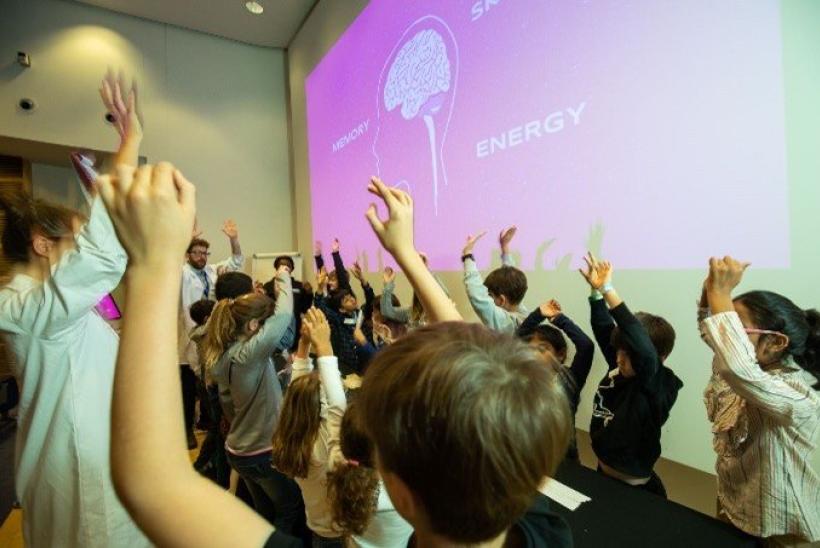NIHR GOSH BRC funding goes into ‘space’ to share brain research
A theatre group funded by the NIHR GOSH Biomedical Research Centre has developed their successful children’s event into an interactive online film for schools and festivals.
In 2018, On The Button theatre group were awarded £12,000 by NIHR GOSH BRC to create a piece of theatre aimed at 7-11 year olds, which tells the story of a little girl astronaut, Jude Starbeam, who gets lost in space. The show was inspired by the stories of young people growing up with a brain injury and their families and was an opportunity for researchers specializing in Childhood Brain Injury to co-develop the project along with a Young Person’s Advisory Group for research (YPAG) member.
In 2021 the theatre group then developed their show into a 24 minute online interactive film called: “Jude Starbeam and the Mind Mission” to reach even wider audiences while still creating something suitable for schools and other centres of learning.
A history of working with patients and the public
In 2018, alongside the Albany Theatre production, the NIHR GOSH BRC team and researchers from Great Ormond Street Hospital (GOSH) and University College London Institute of Child Health (UCL GOS ICH) ran two workshops at the annual NIHR GOSH BRC Family Fun day for research, with around 60 children and young people, to resoundingly positive feedback.
This successful engagement day then inspired a well-attended run of a full-length play Jude Starbeam and the Shadow Planet, which was so popular at its run at The Albany that a UK tour was planned in 2020, while the school workshop that toured in 2019 proved so successful that teachers asked On The Button to return in 2020. Unfortunately, the pandemic meant that plans needed to be adapted but, through top-up funding from the BRC, a new avenue was found.
Increasing appetites for online activity and educational materials during the pandemic prompted the team to redevelop the project with a wider reach than a school tour to something that could also be used outside of traditional learning settings - for festivals or at GOSH (for siblings of patients who have experienced a traumatic brain injury.
From funding to impact
The £2,000 top-up funding they received from the NIHR GOSH BRC covered the creation of the film, the theatre team, producer and researchers’ time for researching, co-developing, starring in the video, co-writing educational packs.
The educational packs have already been distributed to schools and are a great support to peers to aid understanding of brain injuries, enabling larger group discussions with the engaging activities.
This project has allowed the theatre and research teams to engage and educate the public in research in an exciting and innovative way, a key objective of the NIHR GOSH BRC.
The project was also part-funded by a grant from the Arts Council and Wellcome. The project is supported by the London Brain Project, the Child Brain Injury Trust (CBIT) and two researchers at UCL GOS ICH – Dr Rachael Elward and Dr Frederique Liegeois.
About the NIHR GOSH BRC
NIHR Biomedical Research Centres (BRCs) are collaborations between world-leading universities and NHS organisations that bring together academics and clinicians to translate lab-based scientific breakthroughs into potential new treatments, diagnostics and medical technologies.
The NIHR Great Ormond Street Hospital Biomedical Research Centre (NIHR GOSH BRC) is a collaboration between Great Ormond Street Hospital (GOSH) and the UCL Great Ormond Street Institute of Child Health. We are proud to be the only National Institute for Health and Care Research (NIHR)-supported Biomedical Research Centre solely focusing on paediatric research. We provide cutting-edge facilities and world-leading expertise and access to over 200 rare disease patient populations allowing our staff and NHS, university and industry collaborators to conduct pioneering translational research into childhood illnesses.
We were first awarded Biomedical Research Centre status by the National Institute for Health and Care Research (NIHR) in 2007 and, in 2022, we secured £35 million for our fourth term.


